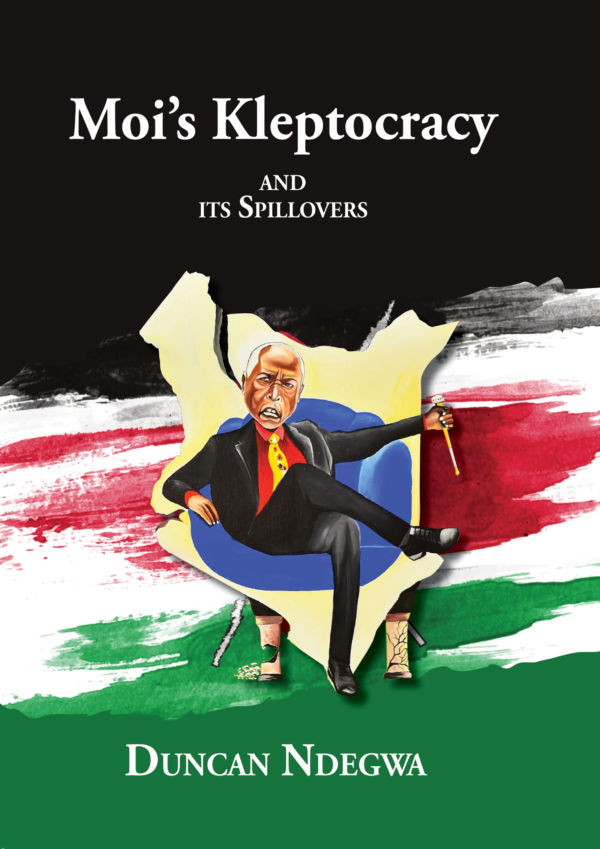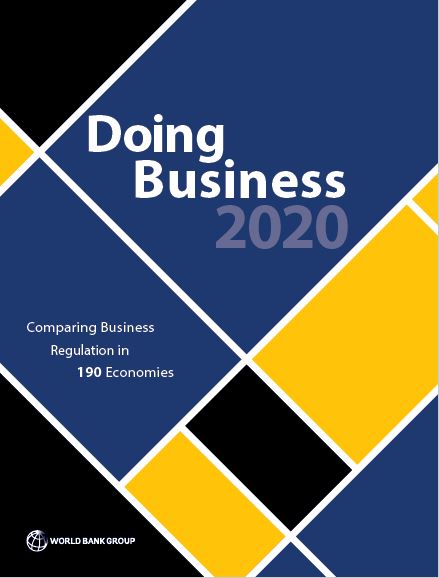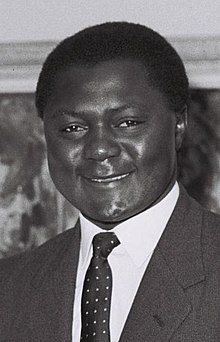By Sitati Wasilwa
The State Council Information Office of the People’s Republic of China released a white paper, China’s International Development Cooperation in the New Era, on January 10th, 2021. This white paper is a projection of China’s global geostrategic ambitions at a time when the world is battling the COVID-19 pandemic and its effects, and the dawning reality of a multi-polar world.
Context
China’s New Era started after the 18th National Congress of the Communist Party of China (CCP) in 2012. The dawn of the New Era was significant to China’s global relations in two major ways. First, it represented a shift from Deng Xiaoping’s thought on foreign relations which guided China for several decades as the country experienced one of the world’s greatest economic miracles. Deng’s thought on China’s external engagement was based on the need to “hide our capabilities and bide our time; be good at maintaining a low profile; and never claim leadership”. Thus, the New Era signified China’s arrival on the global stage as a major power player, aggressive enough to influence the establishment of a new world order.
Second, the commencement of the New Era was marked by the launch of the Belt and Road Initiative (BRI) as the primary foreign policy instrument. The introduction of the BRI was symbolic; drawing inspiration from the ancient Silk Road, a network of trade routes established about 2,000 years ago during the Han Dynasty and connected China to the Mediterranean region via Eurasia.
More importantly, the timing of the release of the white paper is strategic; it comes at a time when the world is battling the COVID-19 pandemic, a critical juncture set to reconfigure the global economic, political and social infrastructure. The pandemic has elevated China’s vantage position geopolitically: it was the first major economy to recover from the pandemic posting an economic growth rate of 4.9% as of October 2020; it is leading in the supply of the COVID-19 vaccine in the Global South; and it has continually voiced support for multilateralism especially for the World Health Organisation (WHO) after the Trump administration dismissed the essentialism of the institution.
In the book, When China Rules the World, Martin Jacques notes that the 2008 financial crisis marked the beginning of the Chinese World Order. Certainly, the COVID-19 pandemic is an inflection point of the Chinese World Order considering China’s role in vaccine diplomacy and faster economic recovery as earlier stated.
The establishment of the Chinese World Order is exemplified by China’s phenomenal economic rise and America’s decline. Metrics such as China’s impressive economic growth rates, Gross Domestic Product (GDP) size, the share of global Foreign Direct Investment (FDI), share of world exports, the share of global trade, the share of global foreign aid, global cultural infrastructure, and growing military capabilities indicate the reality of the Chinese World Order.
China’s economic growth trajectory is one of the most impressive in history, and has uplifted hundreds of millions of Chinese households from poverty to prosperity and caused China’s reemergence as a formidable global power. In essence, this is a reaffirmation of the centrality of economic growth, first, as an economic indicator, and second, as a political instrument.
Between 2000 and 2018, China’s average economic growth rate was 9.65%, a relatively high growth rate compared to America’s 2.18% over the same period. Although some entities could argue out that the Chinese economy is still playing catch-up to the American one, it is definite that the high growth rates of the Chinese economy have led to massive GDP expansion over time, and convergence of the two is only a matter of time.
The COVID-19 pandemic will potentially accelerate the convergence of the two largest economies in the world considering China’s faster economic recovery than the U.S. from the effects of the virus. In fact, it is expected that China will overtake the U.S. as the world’s biggest economy by 2028 primarily due to faster economic recovery from the pandemic.
China’s impressive economic performance since the institutionalization of economic reforms by Deng through to the anticipated faster economic recovery from the COVID-19 pandemic confers the centrality of economic growth as a political tool in the world. In essence, Michael Mandelbaum notes in the book, Mission Failure, that since the end of the Cold War, economic growth is the primary goal pursued by governments across the world. Mandelbaum’s view is corroborated by Lorenzo Fioramonti as stated in his book, Gross Domestic Problem: “In 1991, the GNP was superseded by GDP, which is still the most popular acronym by which national income is commonly known. From ‘national’ the gross product became ‘domestic’. Although this may look like an irrelevant shift that only insiders would care about, it indeed signalled an important political change”.
China had the highest share of the world’s exports at 10.77% as of 2018. Also, its military spending has increased over time, though still dwarfed by the USA’s. China’s military spending increased almost 23 times between 1989 and 2019, an indication of Beijing’s growth in terms of military capabilities. Historically, powerful states have powerful militaries, and the ancient Chinese state was a leader in military technology leading in the production and usage of gun powder and marine warfare.
The rise and rise of China and its strategic repositioning as contained in the white paper is premised on the South-South cooperation framework. Accordingly, “international development cooperation”, as detailed in the white paper, refers to China’s bilateral and multilateral efforts within the framework of South-South cooperation.
According to the United Nations Department of Economic and Social Affairs, South-South cooperation refers to the technical cooperation among developing countries in the Global South. The South-South cooperation is historically and geostrategically significant.
The historical significance of the South-South cooperation is rooted in the Cold War politics whereby countries of the Global South sought to carve out their own economic and political order to avoid being entangled by the ideological differences between the USA and the Soviet Union. On the other hand, the geostrategic significance of the South-South cooperation is based on the post-Cold War contribution of the Global South to global economic growth (more than half of the world’s growth in recent times) and development in terms of trade, FDI, labour among other metrics. As such, the historical and geostrategic significance of the South-South cooperation informs the centrality of Beijing’s white paper.
Development Cooperation
The white paper outlines China’s five approaches to development cooperation, but I consider three of them as the most significant and consequential: South-South cooperation as the focal point of China’s socio-political and economic leap; the BRI as the main instrument of promoting global social, political and economic prosperity; and facilitating the collective achievement of the UN Agenda 2030 goals on Sustainable Development among developing countries.
I have briefly explained the essentialism of the South-South cooperation in view of China’s global geostrategic ambitions, but I revisit some of the events that prompted the heavy focus towards the Global South. First, the Global South is not deeply entangled in the economic system of the West – although China and the USA are each other’s main trading partners – and events such as the Asian financial crisis, which barely affected China, and the 2008 financial crisis as well as the Great Recession which monstrously ravaged Western economies while China escaped with a few dents especially on its exports, inform Beijing’s near-obsession with the South-South cooperation.
Second, the rise of the USA-China trade war and the likelihood of it turning out to be a protracted economic battle between the world’s two largest economies in terms of GDP size firms up China’s focus on the South-South cooperation as an economically strategic front. Third, the Global South is massively endowed with resources – markets, labour, minerals, oil, and arable land – that are critical in China’s economic growth and development.
The BRI is Beijing’s geoeconomic and geopolitical masterstroke and perhaps the instrumentarian tool set to catapult China to global socio-political and economic dominance. Accordingly, the white paper enunciates the BRI as a platform meant to:
- enhance policy coordination through the promotion of national and regional initiatives such as the African Union’s Agenda 2063, Asia’s Master Plan on ASEAN Connectivity 2025, the European Union’s Europe-Asia connectivity strategy, Philippine’s Build, Build, Build programme, and Pakistan’s vision of a new Pakistan among others, and facilitate regional economic and trade integration;
- strengthen infrastructure connectivity across countries by building railways, highways, bridges, seaports, airports and telecommunications cable networks;
- promote unimpeded trade by improving the competitiveness of developing countries in the global supply chain (modernizing trade systems and improving trade infrastructure) and enhancing the integration of the economies of developing countries in the global multilateral trading system;
- deepen financial integration by supporting the improvement of financial systems and building multilateral cooperation platforms for financing such as Multilateral Cooperation Center for Development Finance (MCDF); and
- foster closer people-to-people ties by improving people’s lives (housing, water supply, health care, education, rural roads, and assistance to vulnerable groups) and promoting cultural exchanges and cooperation.
For a long time, the Beijing Consensus largely concentrated on promoting the economic interests of the Chinese state, and it still does. But with the advent of the BRI, the political and social imperatives of China’s external engagement are bound to occupy a central position of its global agenda. Enhancement of policy coordination fundamentally implies that Beijing seeks to influence the political processes and outcomes of countries that have signed up for the BRI.
Championing for closer people-to-people ties is China’s soft power approach aimed at improving the quality of social amenities and promoting cultural cooperation. In particular, the white paper highlights that “China has launched a project known as Access to Satellite TV for 10,000 African Villages aimed at providing digital TV connection for rural communities in more than 20 African countries, opening a new window for them to see the world”. But is the project intended to enable the rural communities to see the world or to discover what China is all about?
Moreover, in the white paper, China prides itself in helping other developing countries to achieve the Agenda 2030 goals on Sustainable Development in eight areas which include poverty reduction, food security, health care, quality education, gender equality, infrastructure, sustainable and innovation-driven economic growth, and eco-environmental protection. The devil is in the details; by communicating in the white paper about its assistance to other developing countries to achieve the Agenda 2030 goals, China portrays itself as a champion of global and/or institutional multilateralism aiming to fill the void left by the U.S. especially during the Donald Trump administration.
The white paper highlights three practical measures for development cooperation: China’s fulfilment of its duties as a major country and providing global development with public goods; increasing aid to developing countries within the BRI framework; and proposing cooperation schemes with developing countries through regional cooperation mechanisms. For each practical measure, there are key events that illustrate Beijing’s geostrategic ambitions in the New Era.
For instance, in fulfilment of China’s mandate as a major country providing global development with public goods, the white paper points out the centrality of the UN’s 70th anniversary in September 2015 which ushered in the Agenda 2030 and the virtual 73rd World Health Assembly on May 18, 2020, of which Beijing used the latter to promote its pandemic diplomacy and faith in multilateralism after the USA discredited the event.
Bn increasing aid to other developing countries within the BRI framework, the white paper highlights two events: the First Belt and Road Forum for International Cooperation in 2017 and the Second Belt and Road Forum for International Cooperation in 2019 which repositioned the BRI not only as an economic instrument but also as a welfare-enhancing platform.
There are a host of events illustrating the cooperation schemes between China and other developing countries, but the three which define the course of the Sino-African relations in China’s New Era are the Forum on China-Africa Cooperation (FOCAC) Johannesburg Summit in December 2015; the FOCAC Beijing Summit held in September 2018; and the Extraordinary China-Africa Summit on Solidarity Against Covid-19 in June 2020.
Essentially, the major cross-cutting issues in the white paper include the BRI, multilateralism, foreign aid, and the COVID-19 pandemic diplomacy. The final section of the paper on future prospects for China’s international development cooperation reiterates the primacy of the aforementioned issues. As such, China’s future concerning international development cooperation is hinged on it being part of the global community championing health for all by supporting developing countries in the fight against COVID-19, helping developing countries to improve their public health systems, and supporting the WHO and other international organisations in fighting the COVID-19 pandemic.
Second, the future of China’s international development cooperation is premised on promoting the implementation of the UN Agenda 2030 by supporting international organisations and cooperation mechanisms, eliminating poverty, and promoting South-South Cooperation among others. Third, the future of China’s international development cooperation also rests on improving the capacity for cooperation by reinforcing planning and strengthening the institutional framework, improving project management and exploring new approaches to aid, and enhancing supervision and evaluation to improve project efficacy.
So, how does the white paper on international development cooperation synchronize with China’s second Africa policy paper?
The Bottom Line: Development Cooperation and its Implication for Africa
For the sake of understanding the possible course of Sino-African relations in the wake of the white paper on international development cooperation, it is critical to revisit China’s second Africa policy paper that was released in December 2015 during the FOCAC Johannesburg Summit. At the outset, China’s second Africa policy paper is expected to play second fiddle to the white paper on international development cooperation though there are striking similarities in terms of areas of political, social and economic cooperation, perhaps except for the COVID-19 pandemic.
There are five pillars of China’s second Africa policy paper, but the third pillar on promoting the all-round development of China-Africa cooperation is the most significant. The third pillar seeks to:
- enhance mutual political trust by intensifying high-level exchanges, boosting experience sharing in governance, improving intergovernmental consultation and cooperation mechanisms, and promoting exchanges in various sectors including those between legislative bodies, consultative bodies, political parties, the military and local governments
- deepen cooperation in international affairs
- deepen economic and trade cooperation by boosting Africa’s industrialization, boosting Africa’s agricultural modernization, participating in Africa’s infrastructure development across the board, strengthening China-Africa financial cooperation, promoting the facilitation of China-Africa trade and investment, bolstering resource and energy cooperation, and expanding cooperation on the marine economy
- strengthen development cooperation between China and Africa by increasing development assistance to Africa, supporting Africa in strengthening its public health system and capacity building, expanding cooperation in education and human resources development, eradicating poverty, cooperating and sharing knowledge on science and technology, and cooperating on climate change and environmental protection
- deepen and expand cultural and people-to-people exchanges by expanding exchanges and cooperation in culture and sports, expanding tourism cooperation, broadening cooperation on press, radio, film and television, encouraging exchanges between academia and think tanks, and enhancing people-to-people exchanges
- promote peace and security in Africa by supporting Africa in realizing peace and security, deepening military cooperation, and supporting Africa in confronting non-traditional security threats
- strengthen exchanges and cooperation in consular, immigration, judicial and police areas
China’s white paper on international development cooperation will affect Africa in various ways. First, Africa is expected to play a primary role in China’s COVID-19 pandemic and/or vaccine diplomacy. In due course, Africa may benefit in terms of production and supply of the COVID-19 vaccine, but could also be entangled in vaccine diplomacy if the vaccine has strings attached to it – there is no free lunch. Second, Africa will receive more and more Chinese aid and this may go towards bolstering infrastructural development but may also mean the loss of economic independence for African countries.
Third, the cultural exchanges could be skewed towards promoting the Chinese culture and less of the African culture and this, in the long-run, will establish Africa as a market and consumer of the Chinese culture. Fourth, Africa may join hands with China to support global and regional multilateralism. Fifth, the China-Africa trade is expected to play out in favour of China with Africa set to retain its position as an exporter of raw materials. Sixth, an increase in China’s military presence across Africa is anticipated given the growing interests and influence of the Chinese state.
The COVID-19 is a critical juncture in global geopolitics and geoeconomics, and certainly, China is using it to reposition itself as evidenced by the white paper. But where is Africa? Is it wandering? Is it lost? Is it sleeping? Is it basking? Is it playing to Beijing’s strategy? Is it setting the agenda? Sorry, it is China’s moment.
The writer is a political economist and research consultant on geopolitics/geoeconomics, governance and public policy. Twitter: @SitatiWasilwa LinkedIn: Sitati Wasilwa Facebook: Sitati Wasilwa Podcast: Sitati Wasilwa
This article was first published by The African Executive Magazine.









